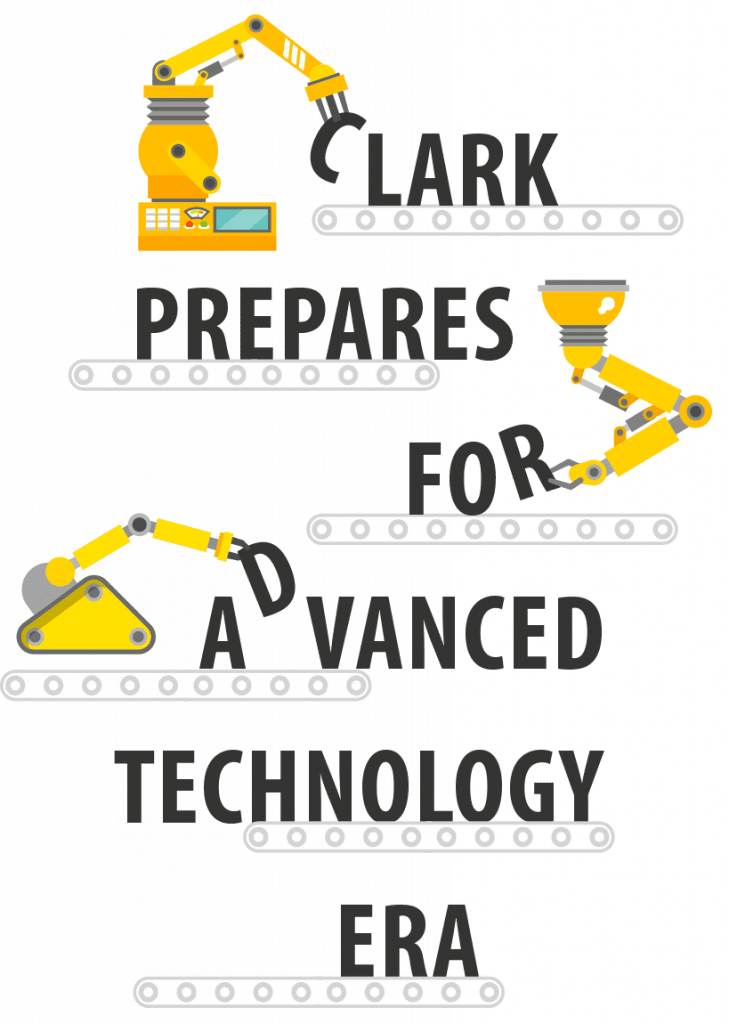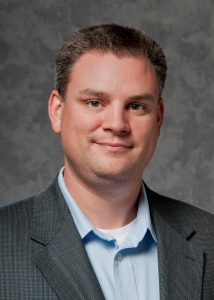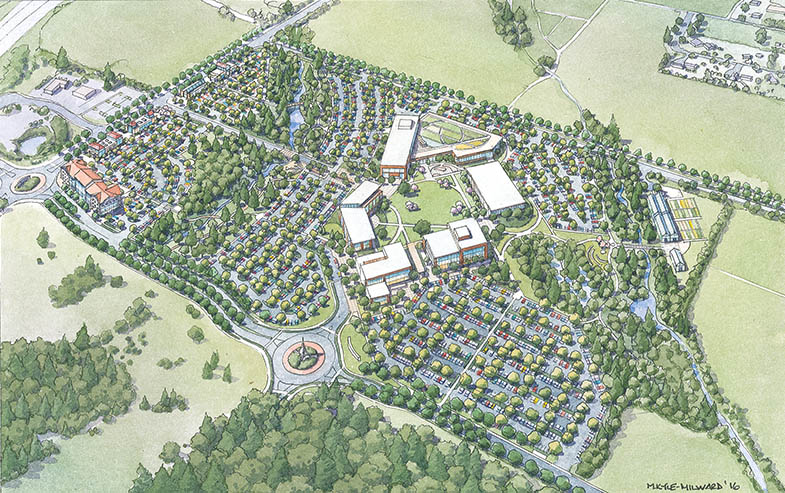Advanced techniques can triple a business’s yearly output
Advanced manufacturing doesn’t have to involve one-of-a-kind products. It can also mean improving the consistency of a brand or the efficiency of a factory.
By Lily Raff McCaulou
 Next year, Clark College will break ground on its ambitious new campus — Clark College at Boschma Farms. The 70-acre property near Ridgefield will house what is being called the Advanced Manufacturing and Makers Center. Industry and college leaders are working together to design the new facility and curriculum.
Next year, Clark College will break ground on its ambitious new campus — Clark College at Boschma Farms. The 70-acre property near Ridgefield will house what is being called the Advanced Manufacturing and Makers Center. Industry and college leaders are working together to design the new facility and curriculum.
Advanced manufacturing may sound like buzzy jargon but technology experts say it describes our future, whether we pay attention to the industry or not. After all, everything we touch has to be manufactured, from toothbrushes to cell phones to mattresses to cars. These and other items are increasingly made using highly advanced technology.
To find out what advanced manufacturing really means, hop on the website of shoe giant Adidas, where a customer can design her ideal pair of sneakers online. She gets to choose the model and size, as well as the details of each component. She can pick the color and material of the sole, the sides, tongue and laces. After a few clicks to pay, a factory makes the shoes to order. A few weeks later, the sneakers of her dreams are delivered to her front door.
Advanced manufacturing describes the making of that pair of shoes. The term also refers to designing a factory capable of producing one-of-a-kind items rather than tens of thousands of identical ones.
“That is a huge challenge for manufacturing,” said Brian Taylor, industrial area manager for Siemens, which worked with Adidas to develop its custom shoe technology. “You can’t make mass-customization of products without huge amounts of digitalization and design.”
Of course, advanced manufacturing doesn’t have to involve one-of-a-kind products. It can also mean improving the consistency of a brand or the efficiency of a factory. Taylor said his company worked with Constellation Brands, which brews Modelo and Corona beers, to get more out of an existing facility, for example. Advanced techniques enabled the company to triple its yearly output, Taylor said.
Advanced manufacturing uses computer modeling to test and tweak the design of an entire factory before any machinery is constructed. Data is then collected and analyzed, allowing production methods to evolve and improve over time. The result is a more efficient and flexible way of manufacturing.
Workforce quality
This new era of manufacturing brings with it a lot of opportunity—for companies, consumers and Clark College. One goal of the new program at Clark is to translate these new manufacturing techniques into family-wage jobs for the region. When the Columbia River Economic Development Council surveyed companies looking to relocate, Taylor said, the number one concern was about the local talent pool.
“Ten years ago, it used to be, ‘What are the incentives?’ Now it’s, ‘What’s the quality and availability of the workforce?’” he said. He added that quality of life is also a concern, as a more desirable community boosts employee retention. Portland and Vancouver are well-situated to benefit, in other words, as advanced manufacturing spreads.
Siemens is a massive global company but its Pacific Northwest presence is a team of engineers and sales people who work with other companies to modernize their manufacturing processes. It is one of a handful of companies partnering with Clark to develop its new advanced manufacturing program. Taylor said working at Siemens has shown him firsthand that the United States needs to do a better job of training people to work in this new, highly skilled field. He sees Washington companies like Boeing regularly looking out of the state or even out of the country for new hires.
Taylor has a personal connection to Clark. He studied at the college from 1993 to 1995, and his wife, Kristi Taylor, is a professor in Clark’s Dental Hygiene program. Taylor said he wants to help Clark meet the growing need for workforce training in advanced manufacturing.

Brian Taylor ’95, industrial area manager for Siemens
Taylor said that 15 percent of Fortune 500 companies have already adopted advanced manufacturing techniques. “The other 85 percent know they need to, to stay competitive.” And as manufacturers modernize, workers need to learn new skills to keep pace.
Overcoming misperceptions
Genevieve Howard, dean of workforce, career and technical education at Clark, said one of the biggest challenges for the new campus is overcoming misperceptions about the manufacturing industry.
“For so long, manufacturing had this really bad reputation of, you go into the factory and you come out and it’s dark and you’re dirty and you don’t get paid very much. That’s just not the case,” Howard said. “This is a family-wage occupation; it’s highly technical and clean. And I truly think the biggest challenge for us at this time is getting through to students and parents (to adjust) their preconceived notion about what manufacturing is (or isn’t).”
Another misconception about manufacturing is that it is a vanishing industry.
“When people hear about manufacturing, they think about jobs going overseas,” Taylor said, referring to a period of outsourcing in the 1990s, which resulted in millions of U.S. jobs lost.
In fact, manufacturing is a growing U.S. industry with huge demand for trained workers. The Portland-Vancouver region is expected to add 17,000 manufacturing jobs in the next decade, said Kevin Witte, vice president of economic and community development for Clark College.
Taylor said that a person who graduates with a bachelor’s degree in the Portland-Vancouver area could land an advanced manufacturing job that pays $80,000 to $150,000 per year. Companies like Boeing are bringing in the majority of new hires from out of state.
Modernization
Witte said his department works with local employers to design training programs that meet the needs of local companies. As manufacturers modernize and jobs become more technical, Clark could play an increasing role in retraining local employees. These kinds of connections with local employers help keep Clark’s educational programs relevant, Witte added, which is especially important in a fast-changing industry such as advanced manufacturing.
Clark already offers related programs in machining, industrial maintenance, welding and mechatronics. However, those programs are already at capacity, usually filling as soon as enrollment opens each term. The regional demand for this kind of training is expected to increase. The new campus allows for these programs to co-locate for the first time, which will create new, multidisciplinary training opportunities.
Howard said the exact numbers will depend on details such as the size of a particular classroom but her hope is that instead of offering two sections of welding each term, for example, the new campus will facilitate a third.
“If we could increase our enrollment by one-third, that would be phenomenal,” she said.
In a hot job market, retention can be a challenge. Lisa Gibert, CEO of Clark College Foundation, said welders are in such high demand right now that students are often lured away by lucrative job offers after taking just a couple of welding courses, leaving enrollment gaps in higher-level courses. The phenomenon reflects a general economic trend—people are more likely to enroll in community college when the economy is flagging.
“When the economy is good, people go back to work and our (overall) numbers go down,” Gibert said.

An architectural rendering of the future campus in Ridgefield: Clark College at Boschma Farms over a 40-year or more period.
Boschma Farms campus
That is why, during the recession a decade ago, Clark found itself “bursting at the seams,” Gibert said. The college was looking for land to expand its presence in northern Clark County to serve residents who lived further from Vancouver. That is when Gibert found a dairy farm owned by a Norwegian couple, Hank and Bernice Boschma. The Boschma family valued the educational mission of Clark and had a personal connection: they took courses at the college to prepare for their national citizenship exam. The swath of land was worth about $12 million, Gibert said, but the family sold it to the foundation for $8 million.
At the time the Boschma Farm deal was finalized in 2014, the advanced manufacturing emphasis had not yet come into focus.
“When we first started talking about it, we were thinking of creating a medical hub up there,” Gibert said.
Eventually, the Boschma Farm campus could have five to seven buildings, the academic focus of each building is still being discussed.
“It absolutely will depend on the demand and what we see coming down the road,” Gibert said. “It will become another main campus.”
That means that eventually, the northern campus will have its own library, student affairs offices and enough course offerings for students to complete their degrees without venturing south to the main campus.
Because the campus’s first building will house a high-tech program, some logistical hurdles remain. For example, the college must figure out how to get high-speed internet access to such a rural locale. Gibert once lived near the future Clark campus, so she understands how much the region needs a high-speed connection. Over the past year, she has met with local government and business leaders as well as private investors about the idea of bringing “dark fiber” to the site. That infrastructure would provide reliable top-speed internet service to the new campus and surrounding community. For now, the foundation and other partners are discussing whether they would have to create a new kind of business entity in order to establish the infrastructure.
As she recounted her discussion of this possibility, Gibert stopped and laughed.
With the Boschma Farms campus, “I have been a part of so many different things that a typical nonprofit would never be involved with,” she said.
Just as advanced manufacturing uses technology to identify and solve problems before any real machinery touches a factory floor, Gibert and others are seeking creative solutions to set the stage for a successful new campus. Clark has not yet broken ground on the Advanced Manufacturing and Makers Center, but the new venture is already living up to its name.
~~~~~~~~~~~
Lily Raff McCaulou is a journalist whose writing has appeared in The New York Times, The Atlantic and The Guardian. She lives in Bend, Ore.



